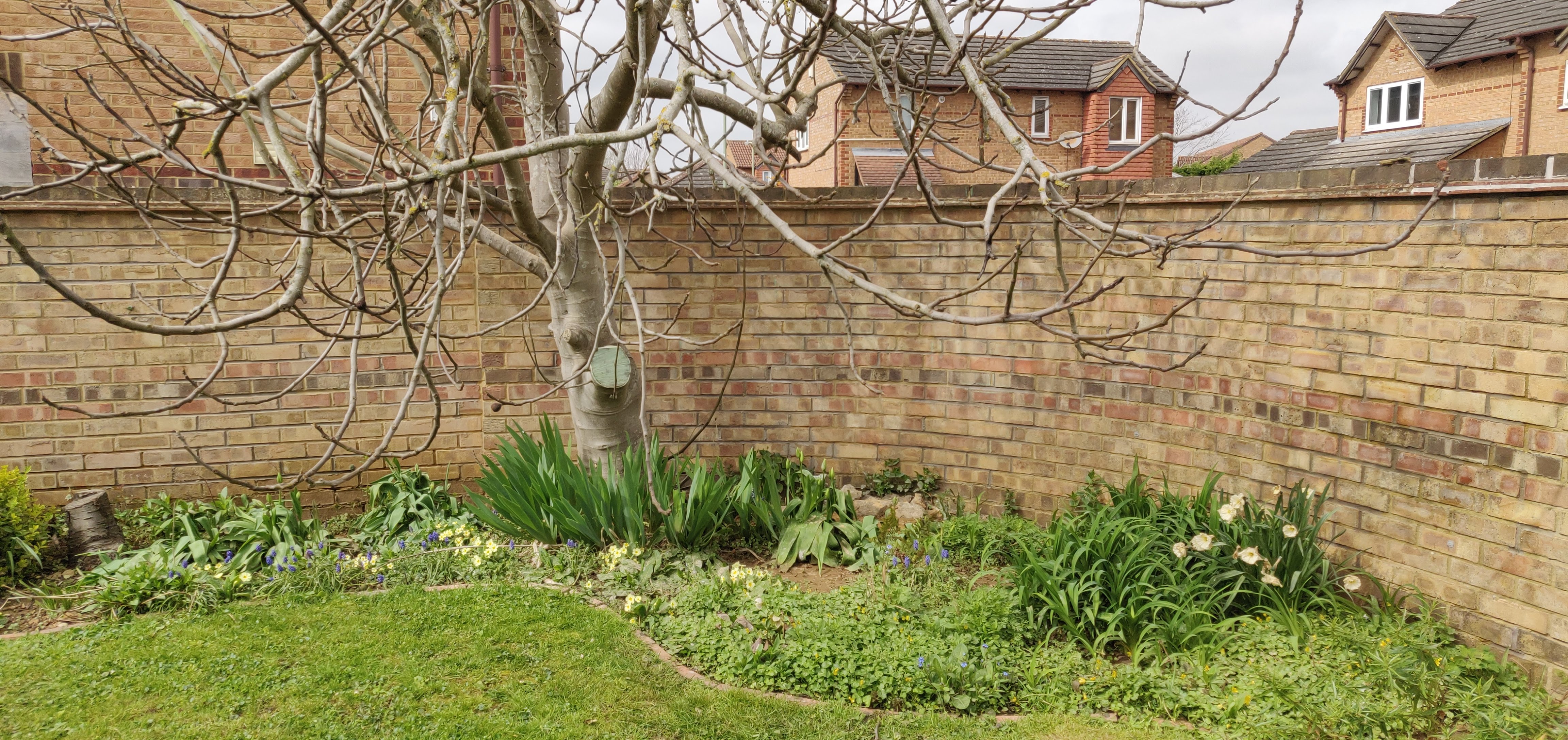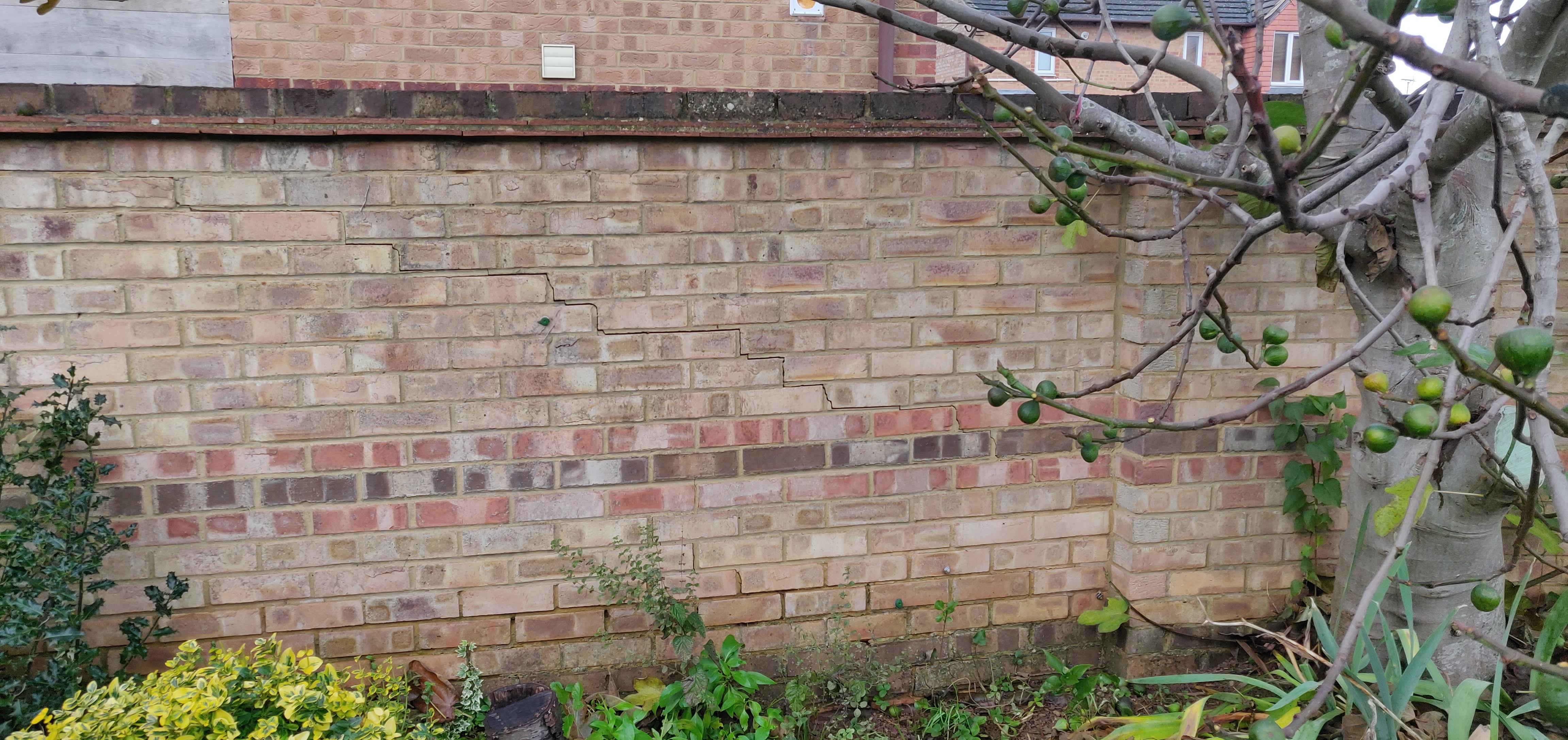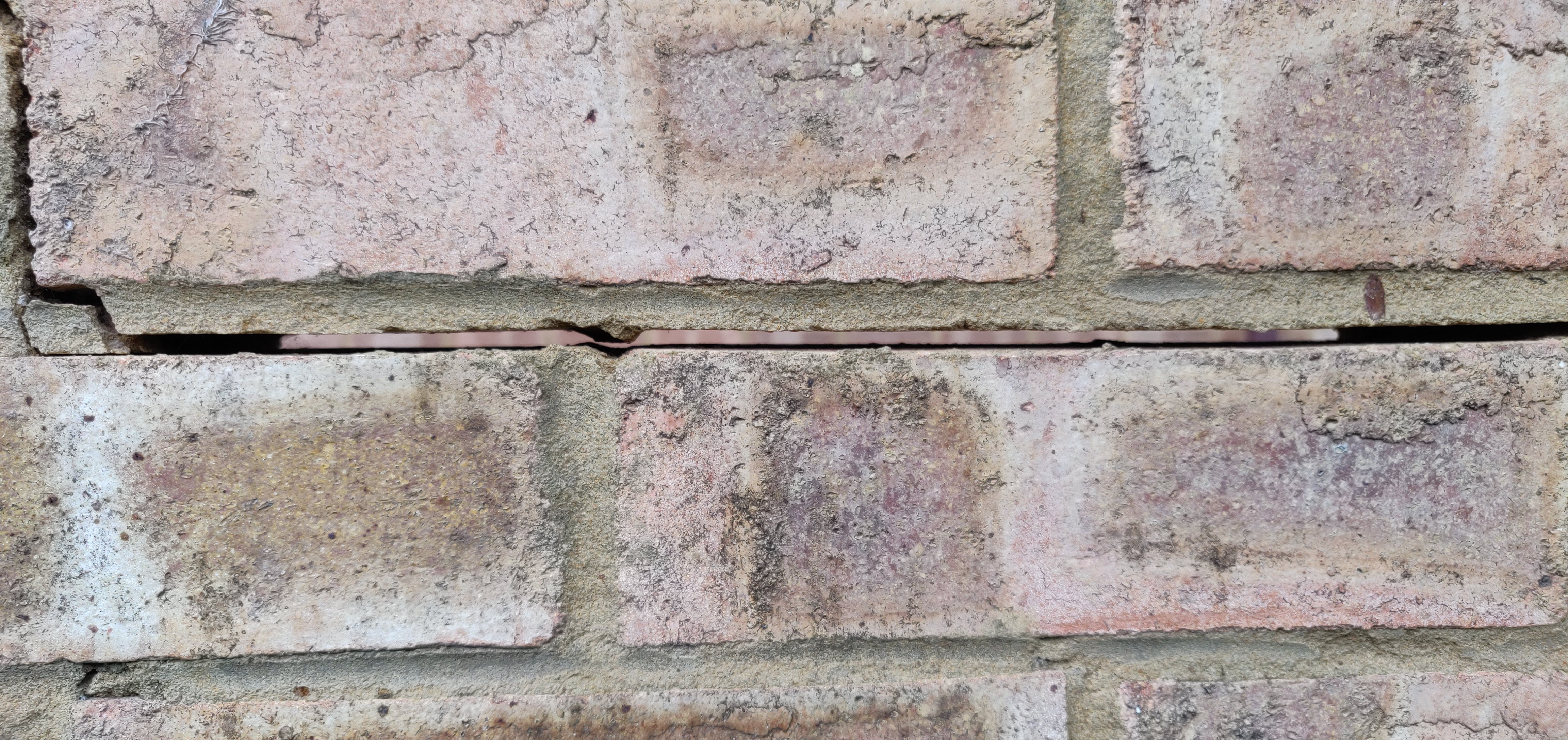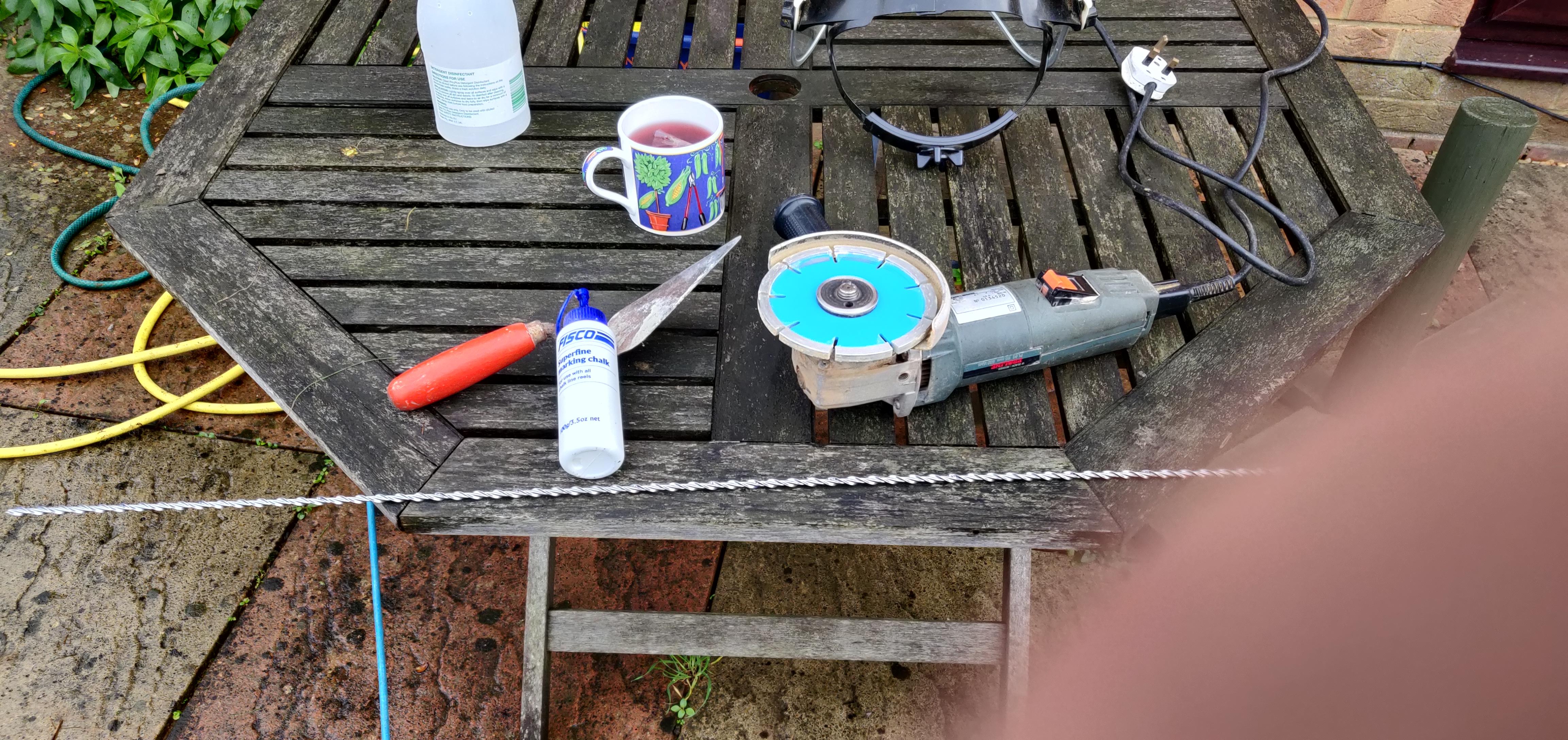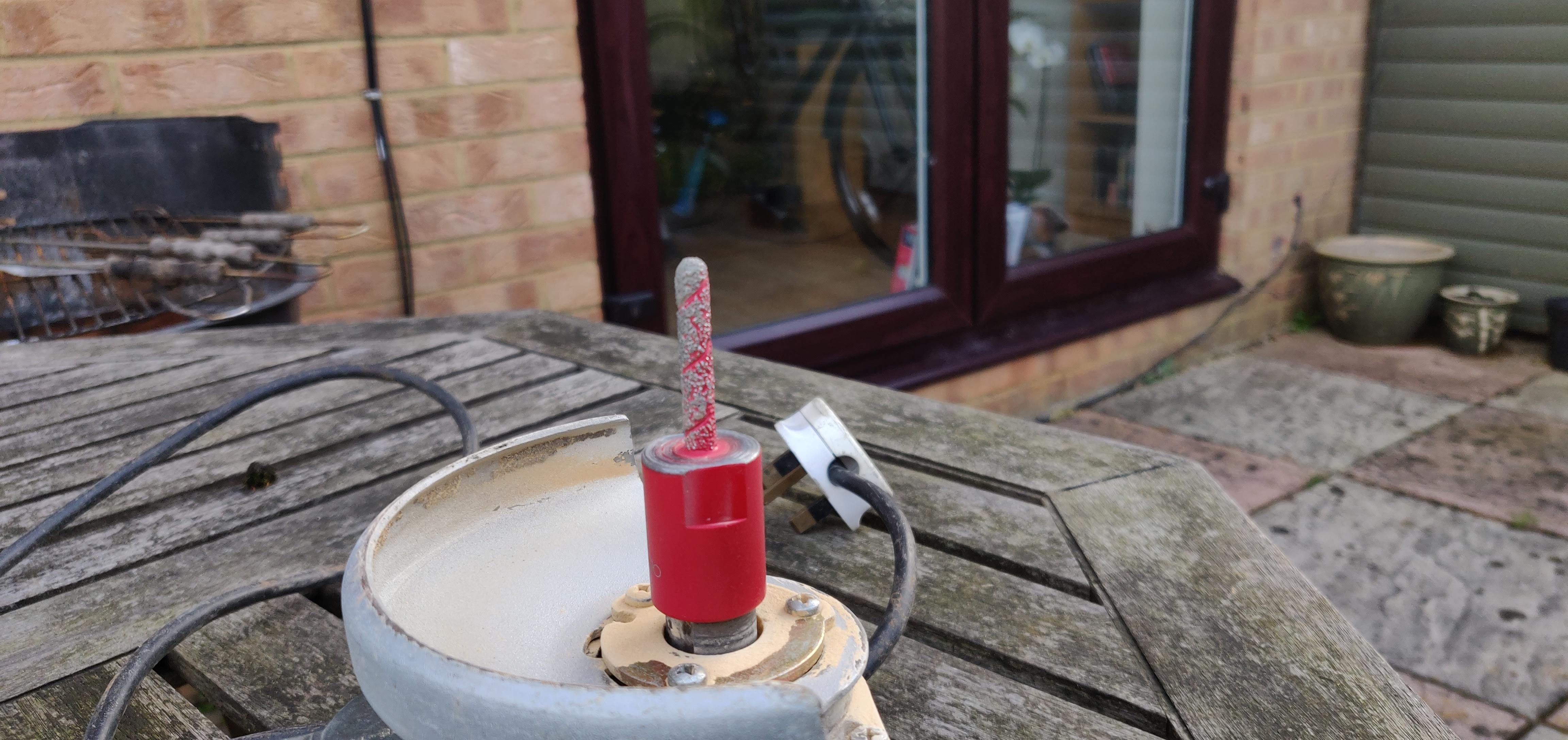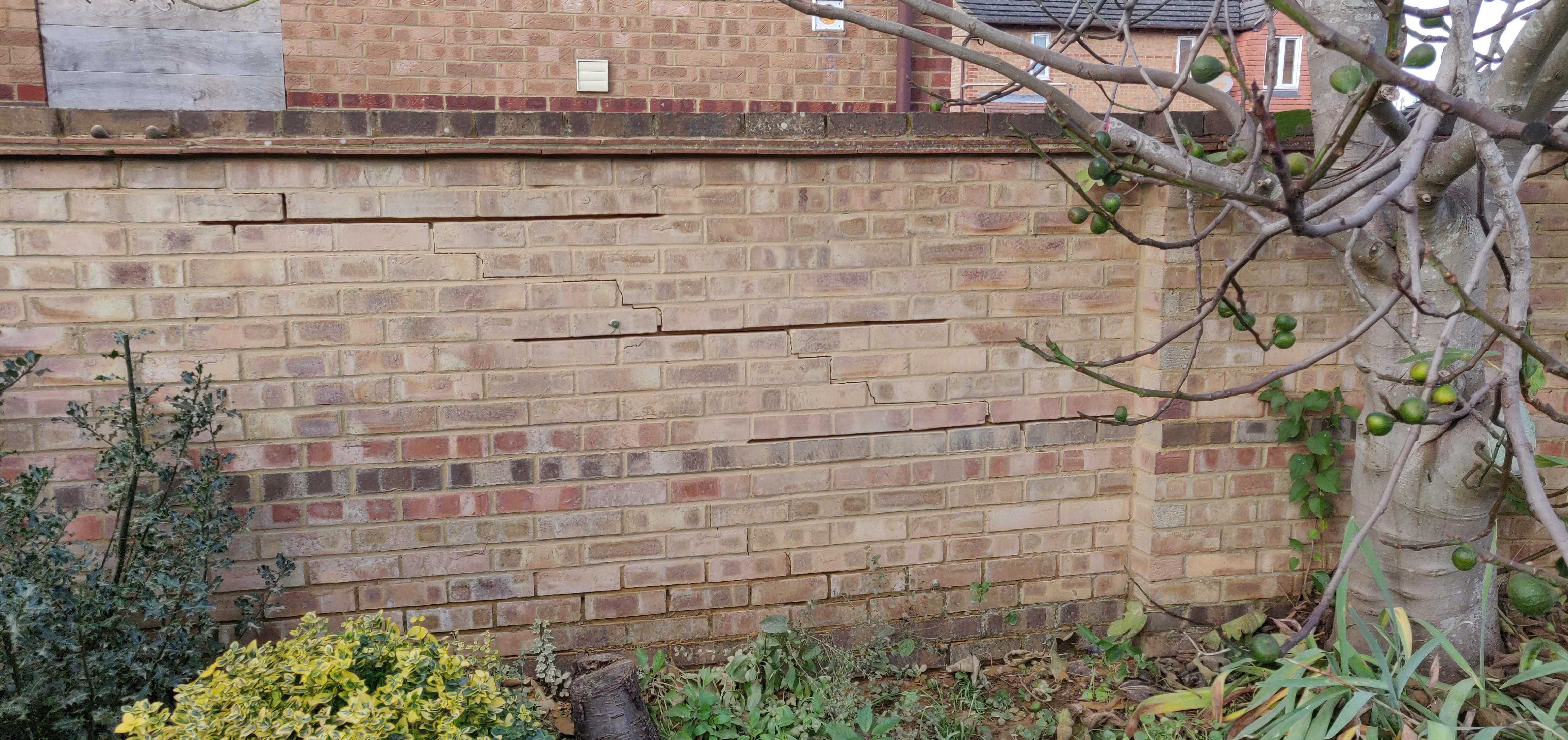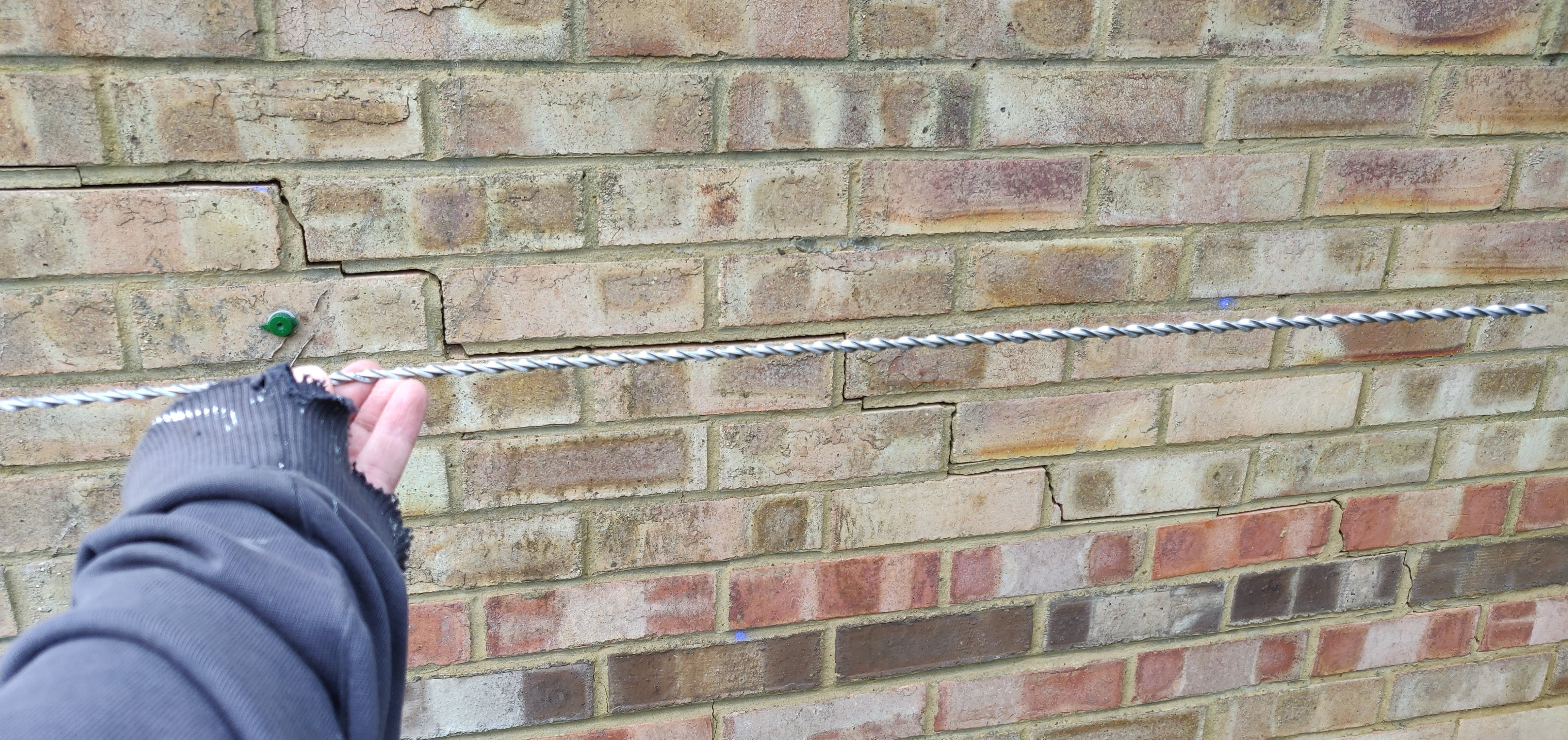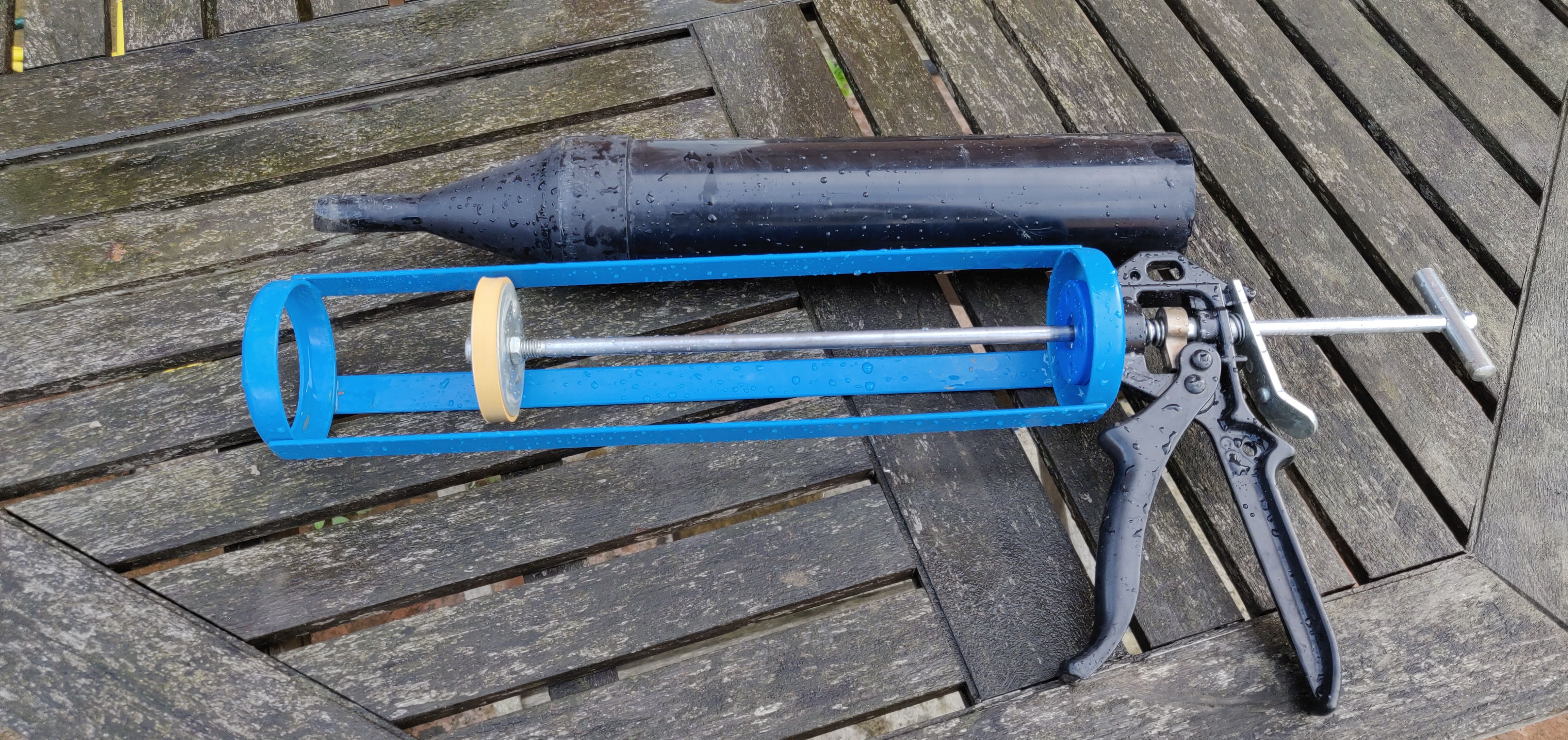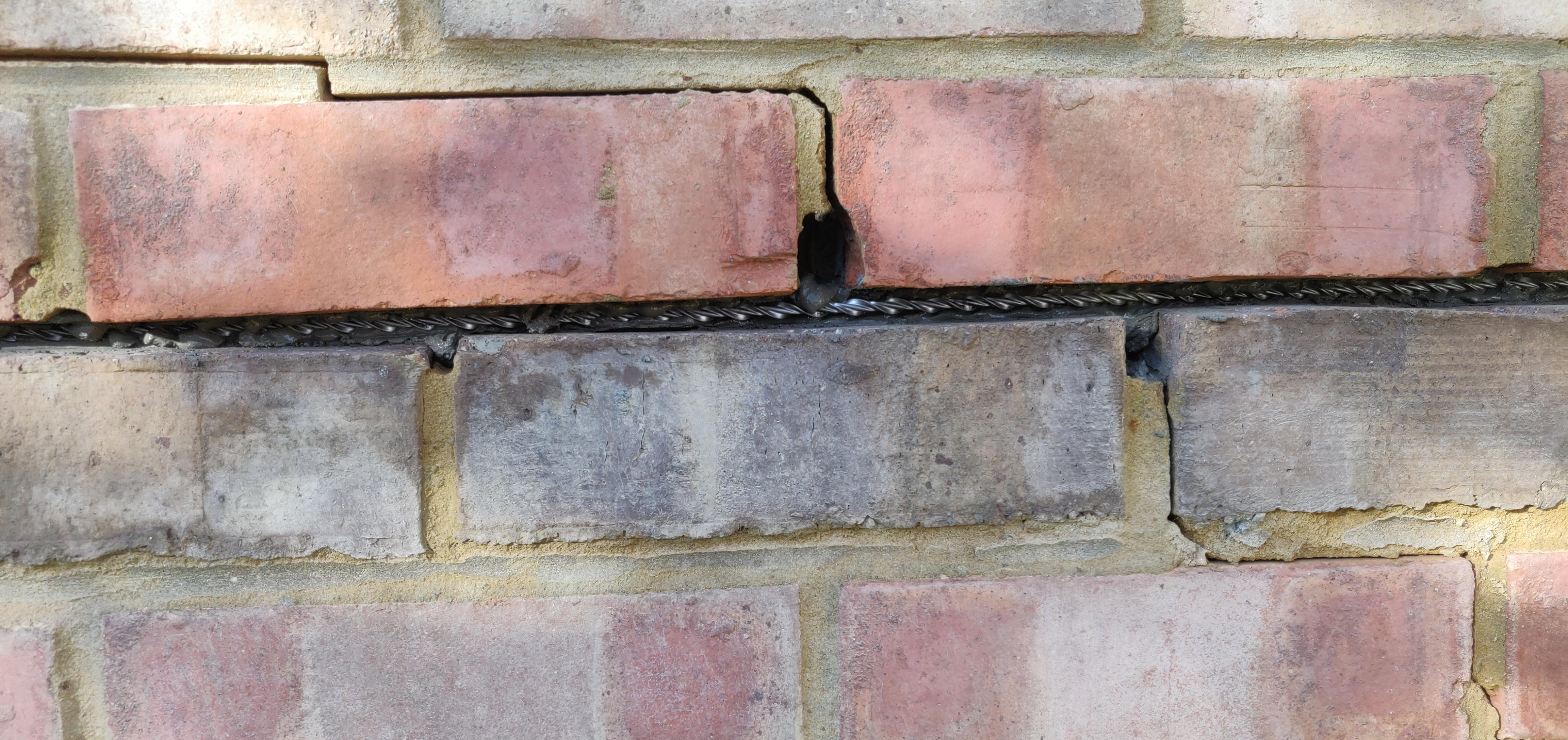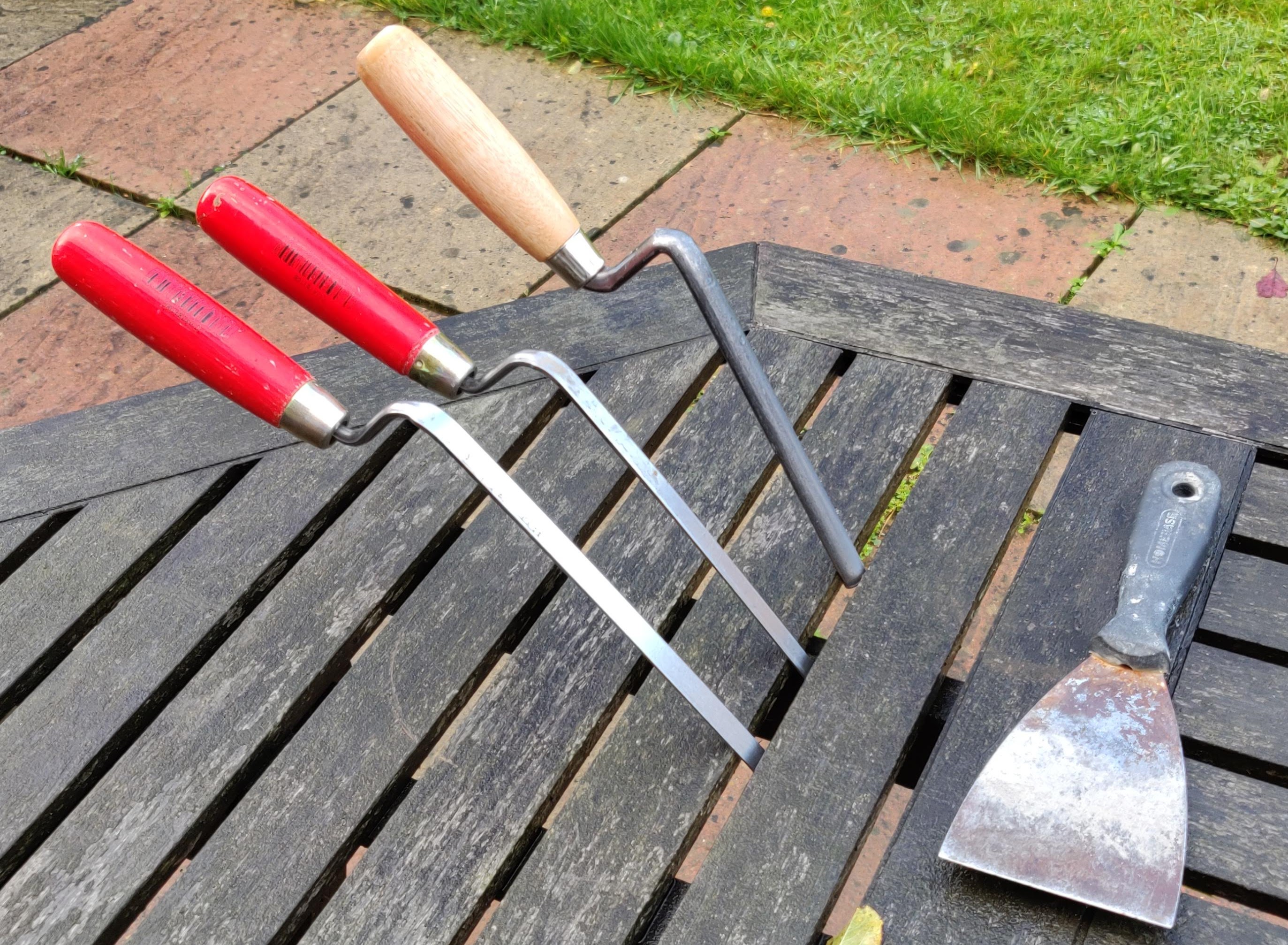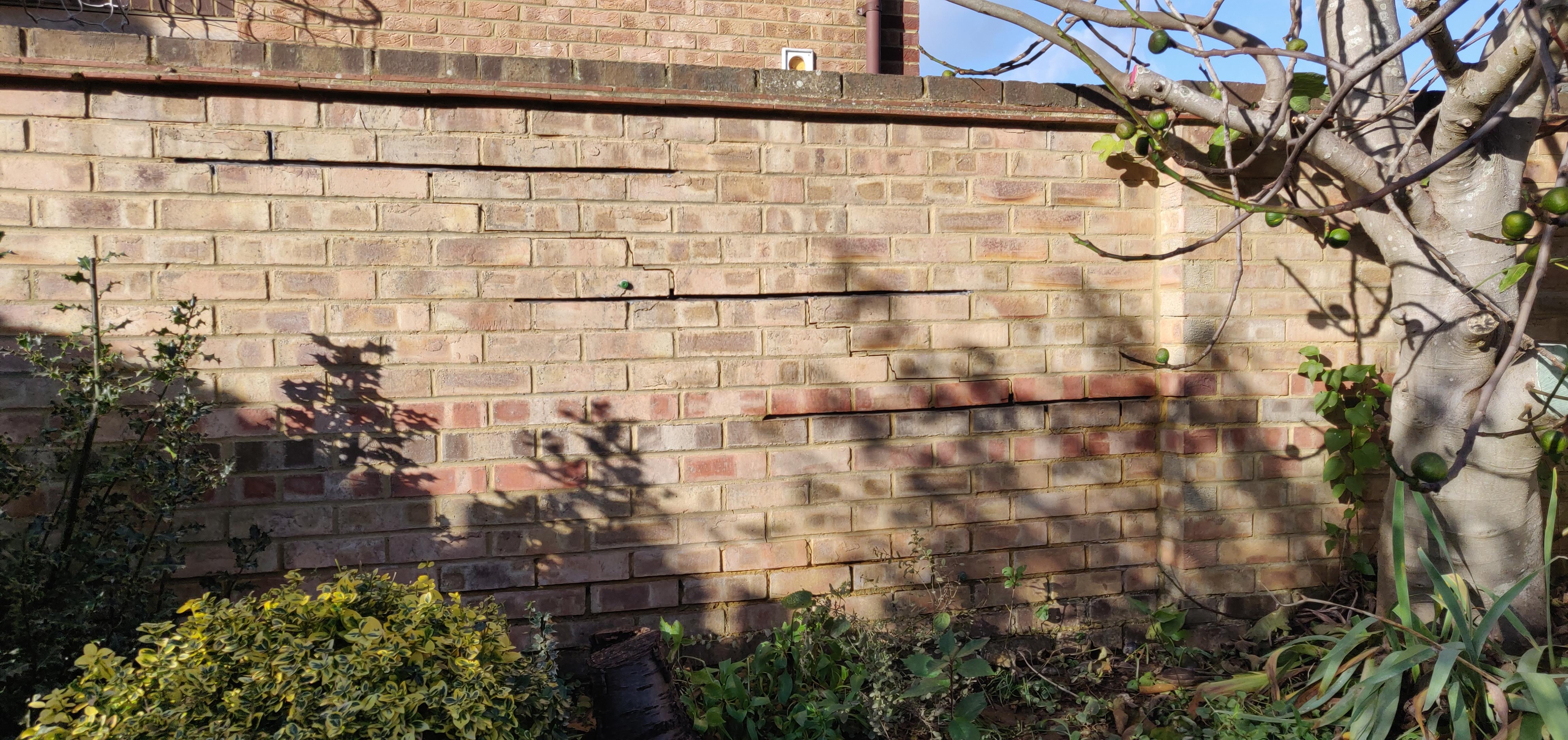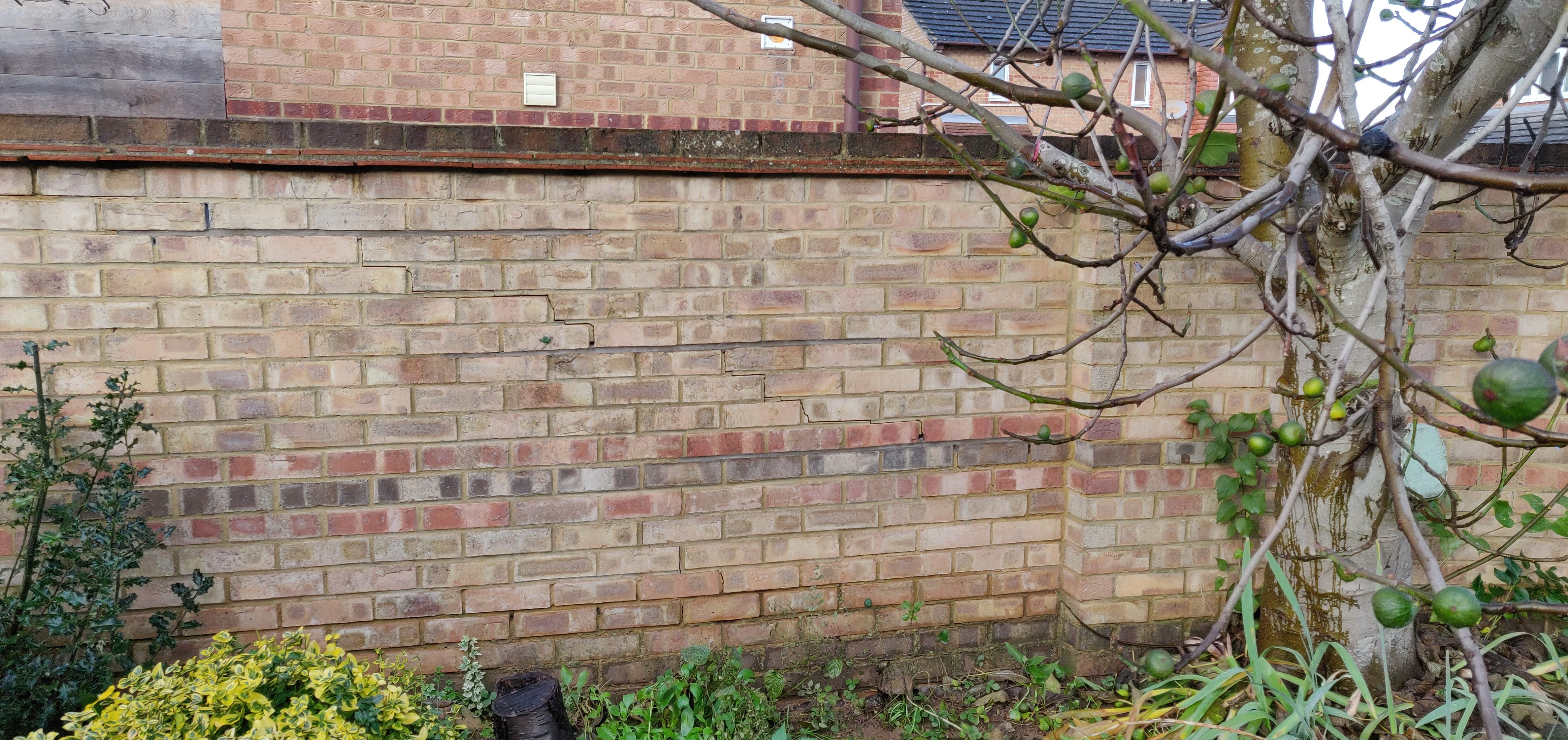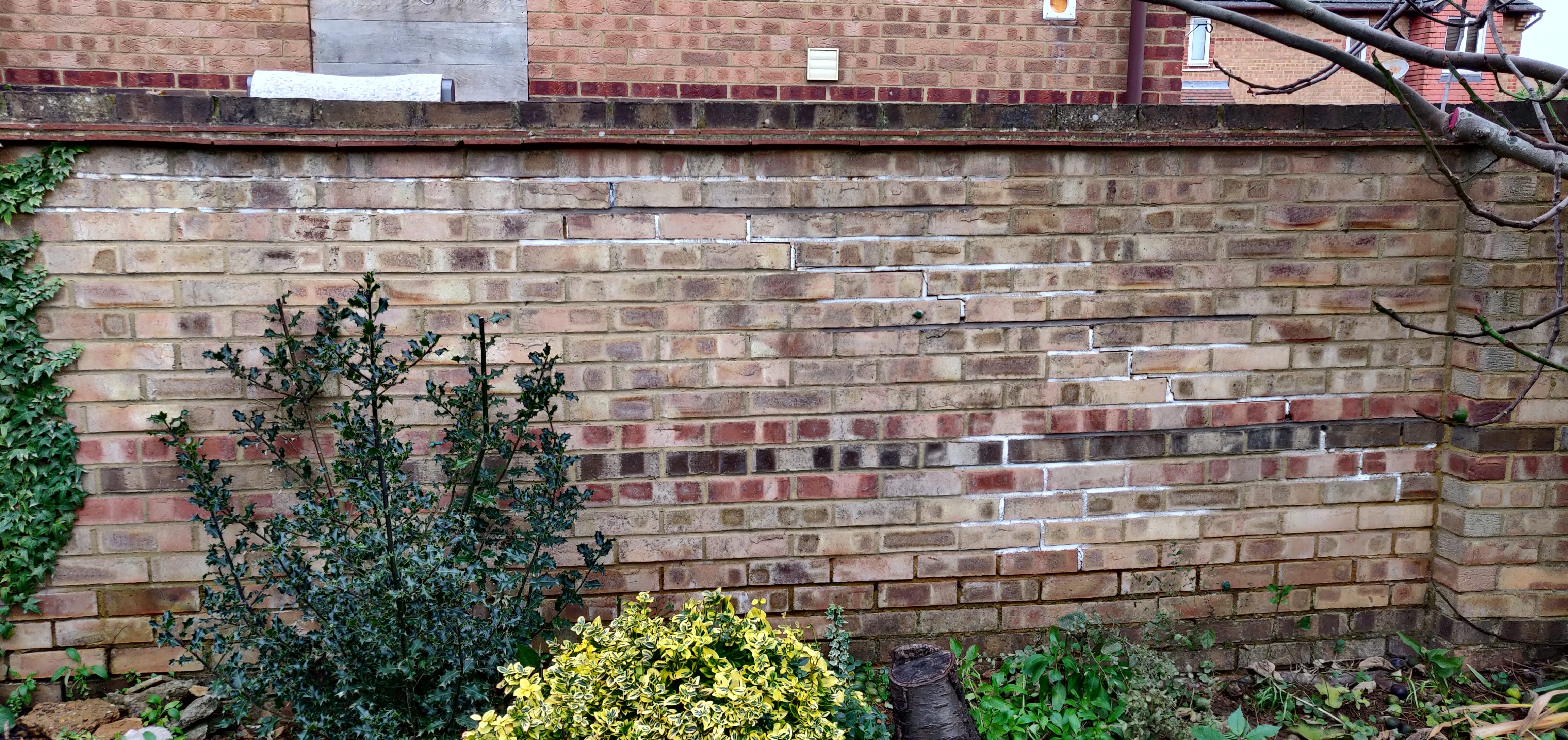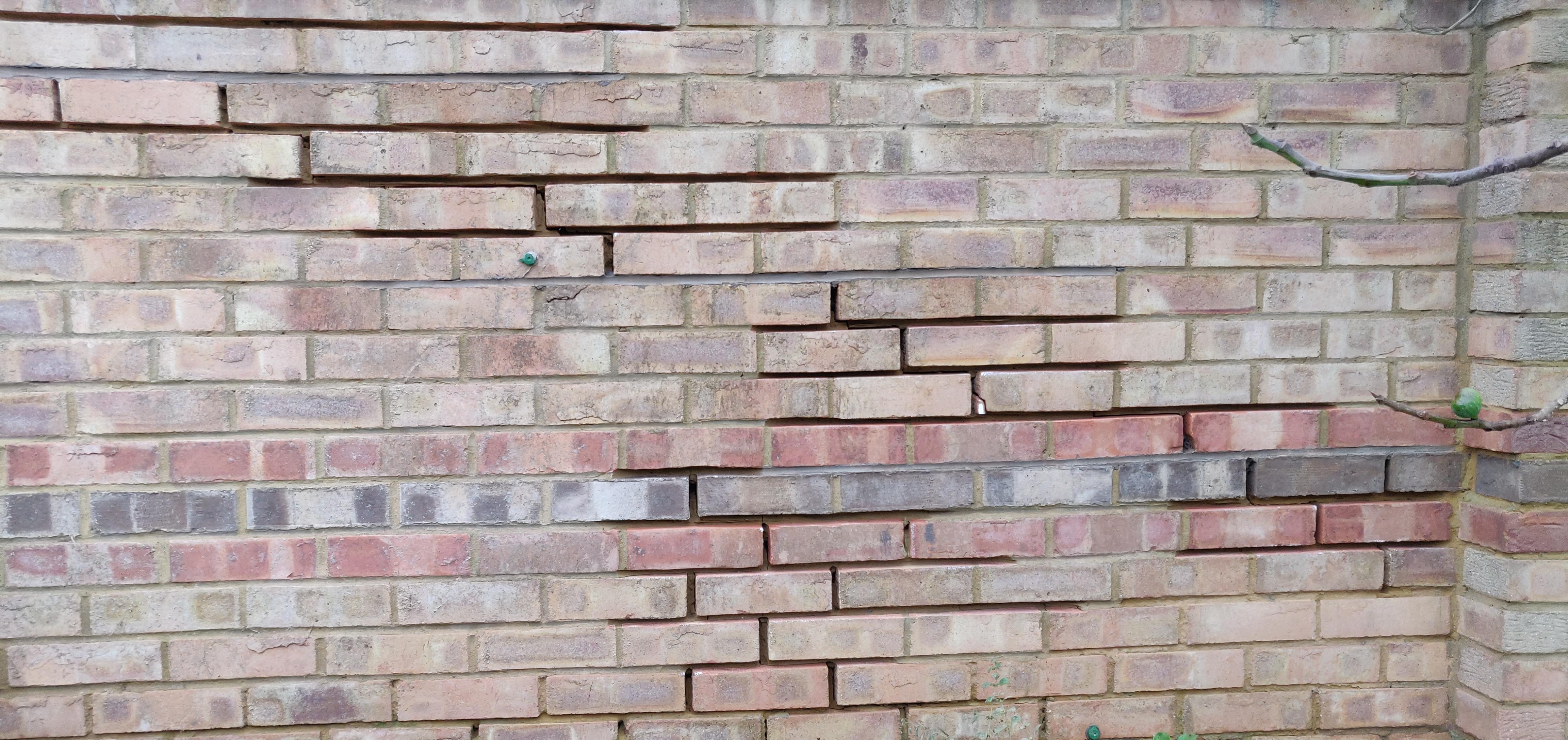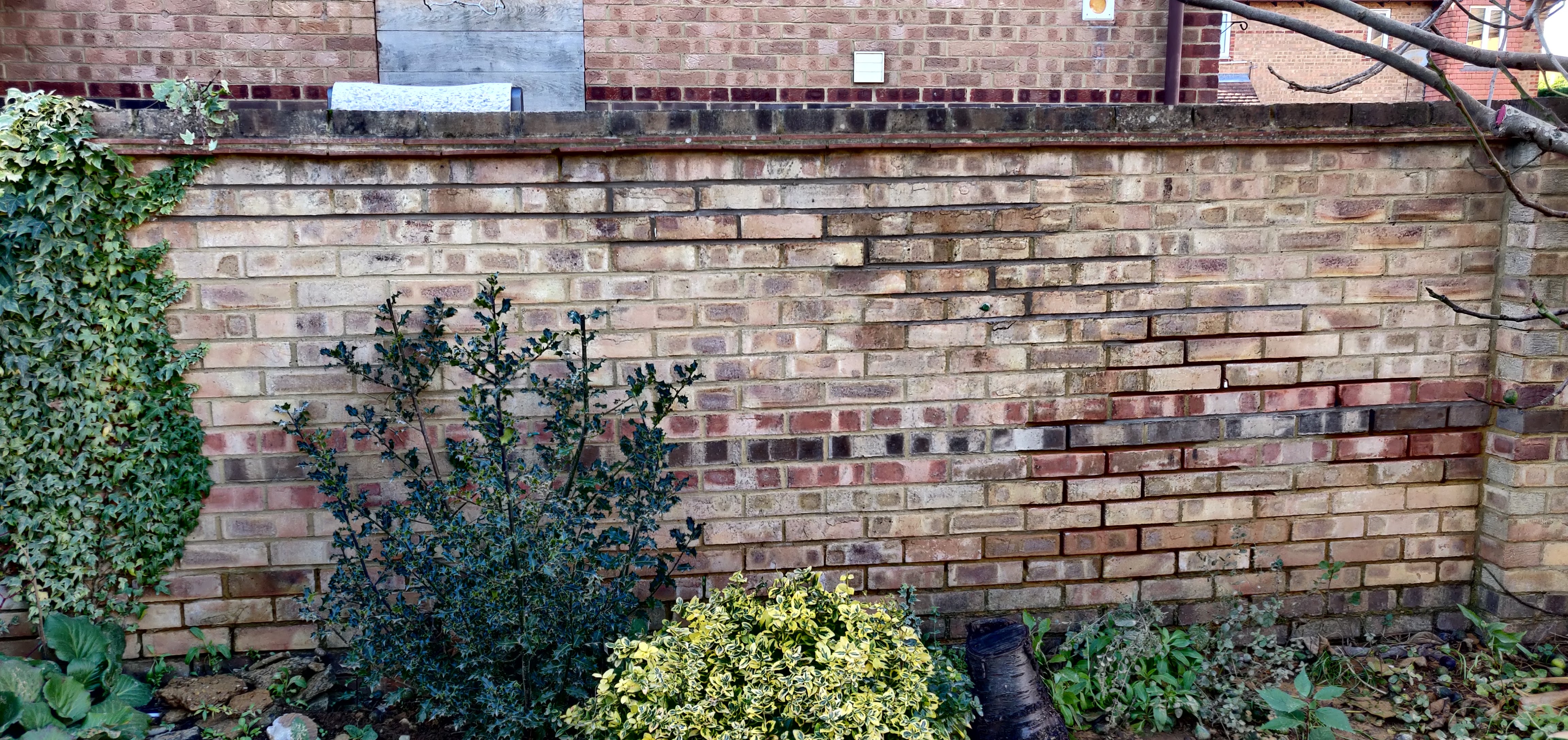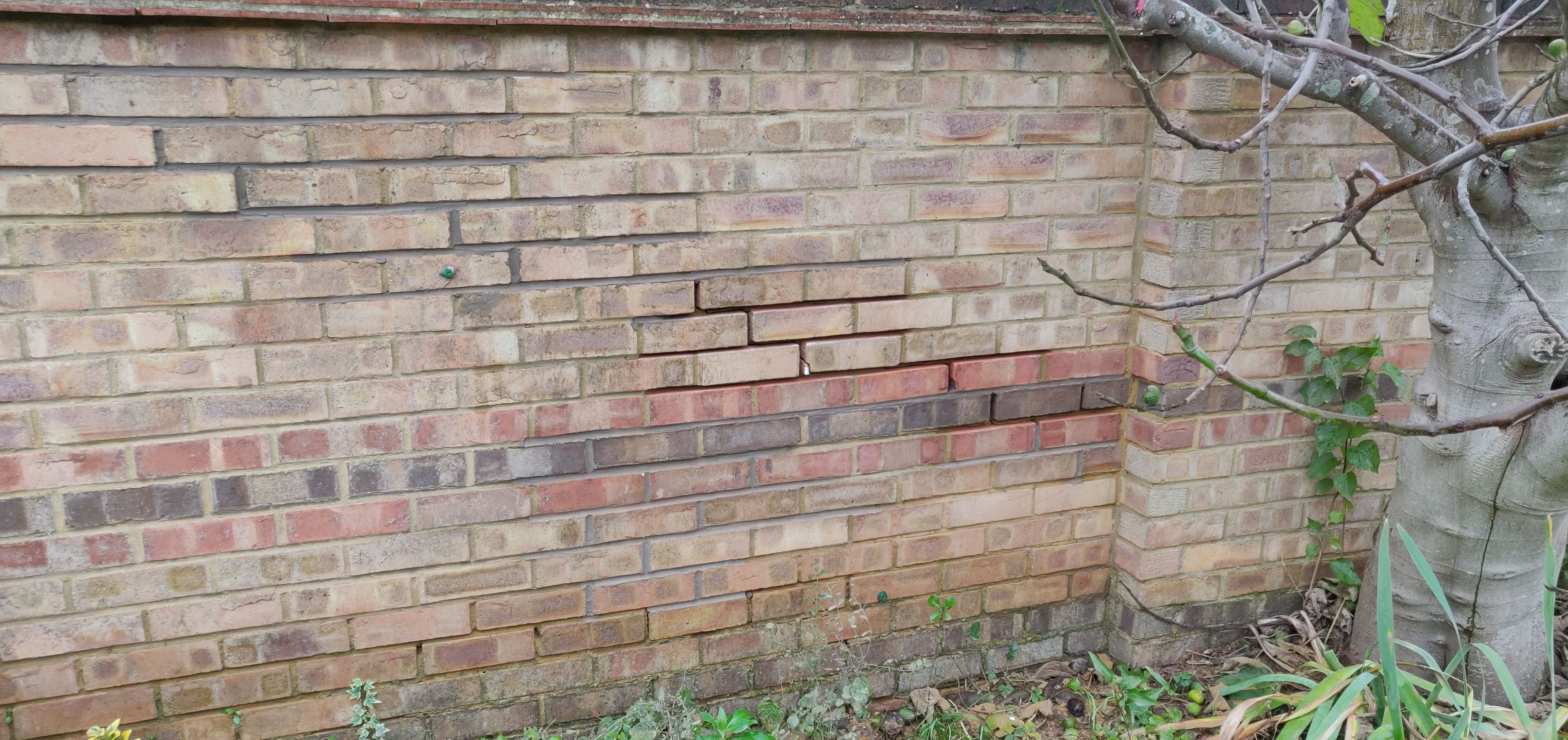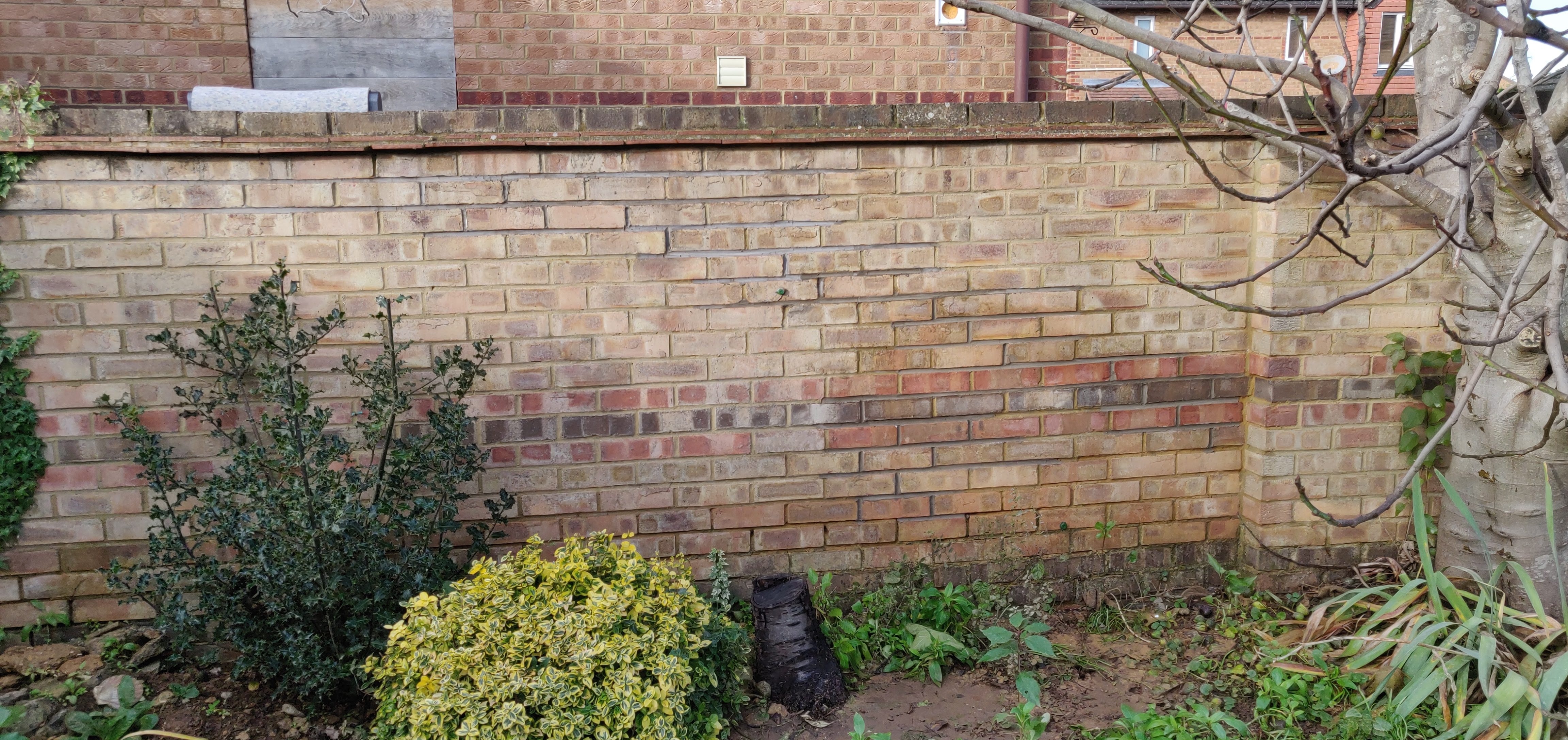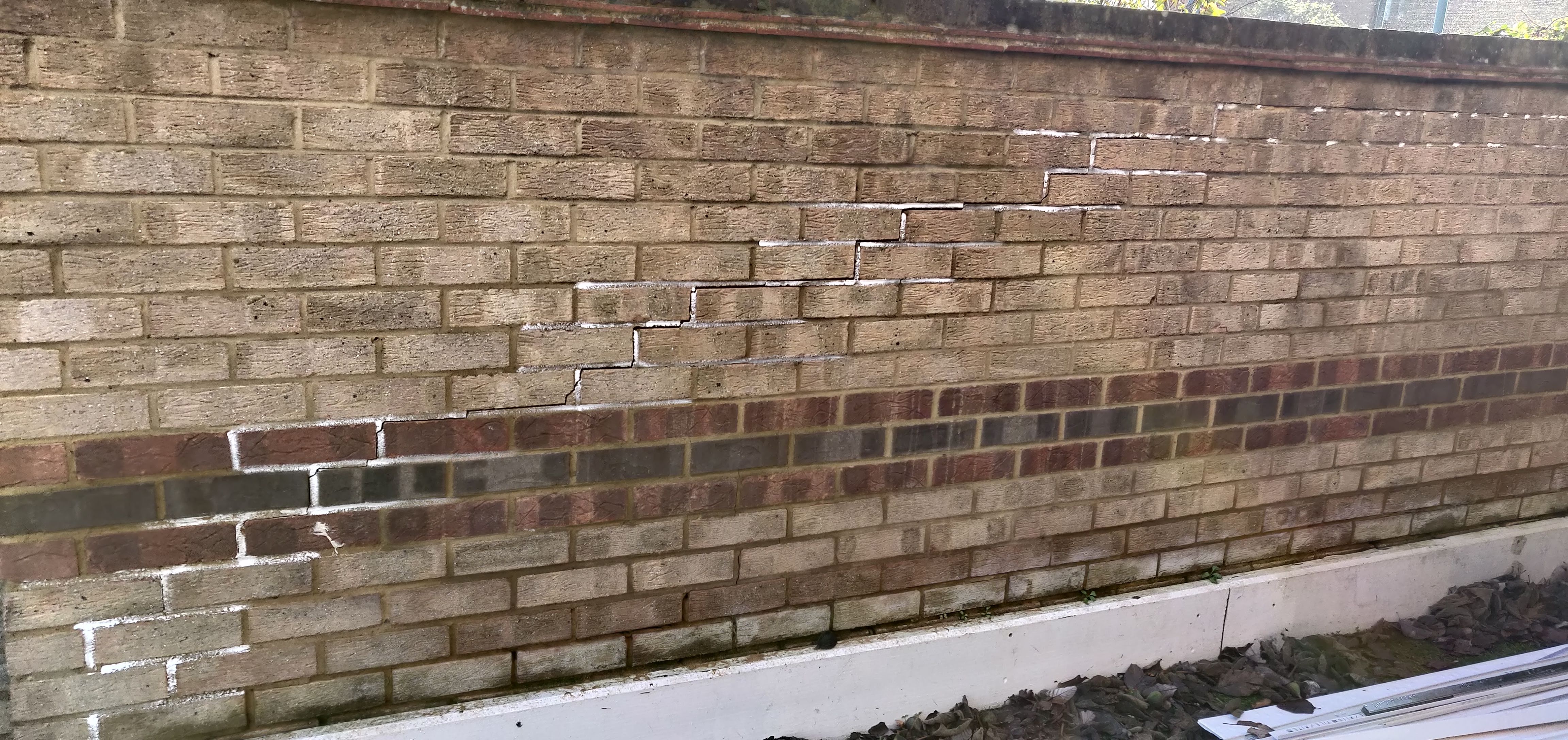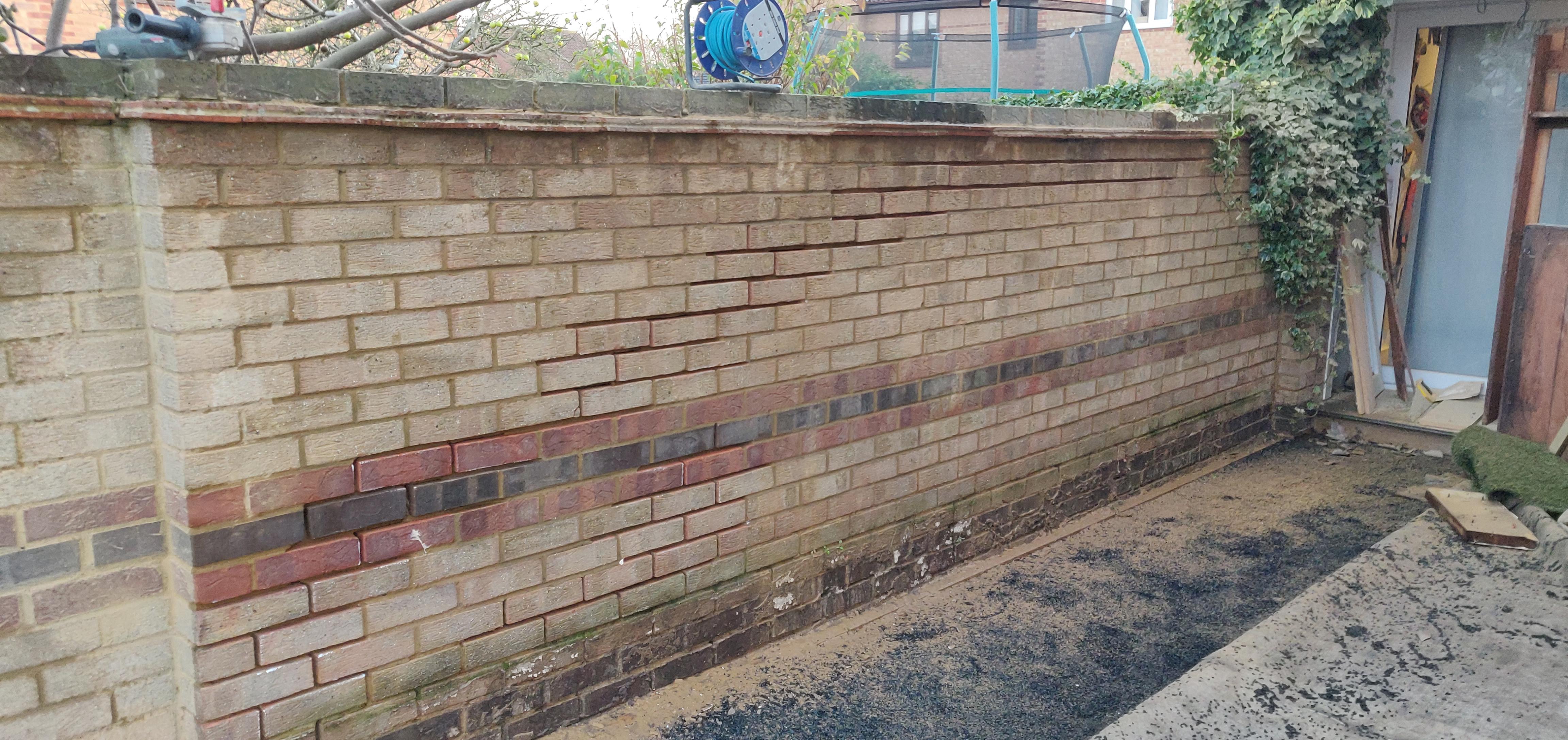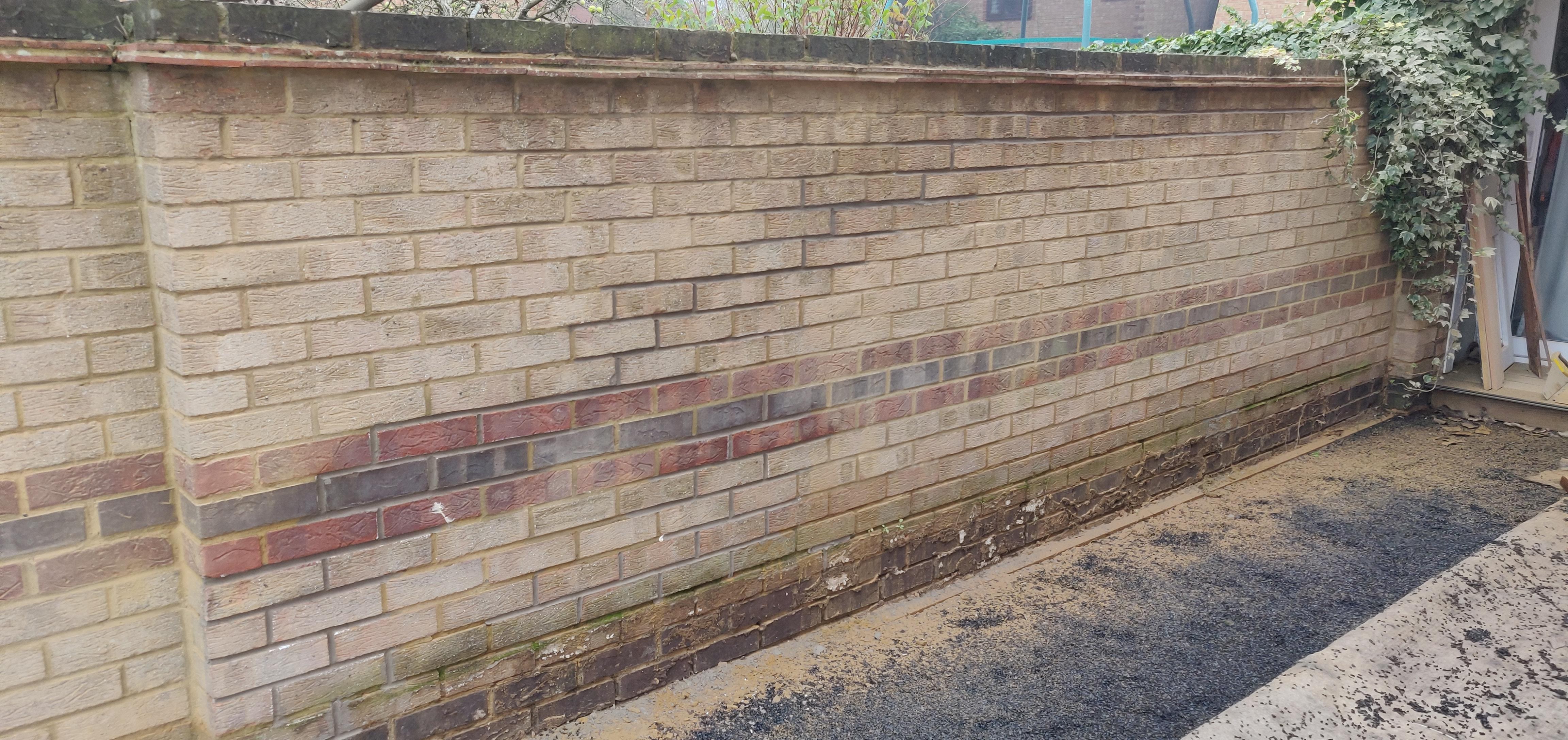Our perimeter wall has a step crack in that needs dealing with before it falls over and gets expensive. I was reading up on repointing walls and stumbled across a technique called ‘stitching’. They use it on buildings where a wall has cracked, so I figured it would be more than good enough for a perimeter garden wall.
So wall stitching involves removing the old horizontal mortar spanning 50cm either side of the vertical crack to a depth of 30mm. Then you inject about 10mm of special anchoring grout and press a helical stainless steel reinforcing bar into the grout. Then you add another 10mm of grout, ultimately covering that with another 10mm of mortar to match the wall. you do this every 4-6 vertical courses of bricks sufficient to cover and reinforce the cracked area. Once reinforced you can then repoint any other bits that need doing.
Some investment in diamond equipped toolage is required. The Diamond disc is incredibly fast and filthy dirty, but only hogs out 20mm. I needed 30mm so got hold of a rod shaped diamond bit for routing out the verticals and a bit deeper on the horizontals. Both of these go on the angle grinder.
Once the slots have been dug out a quick hose-down to clean out loose bits and thoroughly wet the area. Then using a gun that’s similar to a large mastic gun, but better, squirt some grout into the slot, push it in firmly with a tuck pointing trowel, and press a helical rod into it…
Then add more anchoring grout over the rod and smooth that in so the rod is properly embedded, creating a really strong composite structure. The anchoring grout goes off quite quickly, certainly a lot faster than regular mortar. I probably wouldn’t mix more than required for two bars in one session.
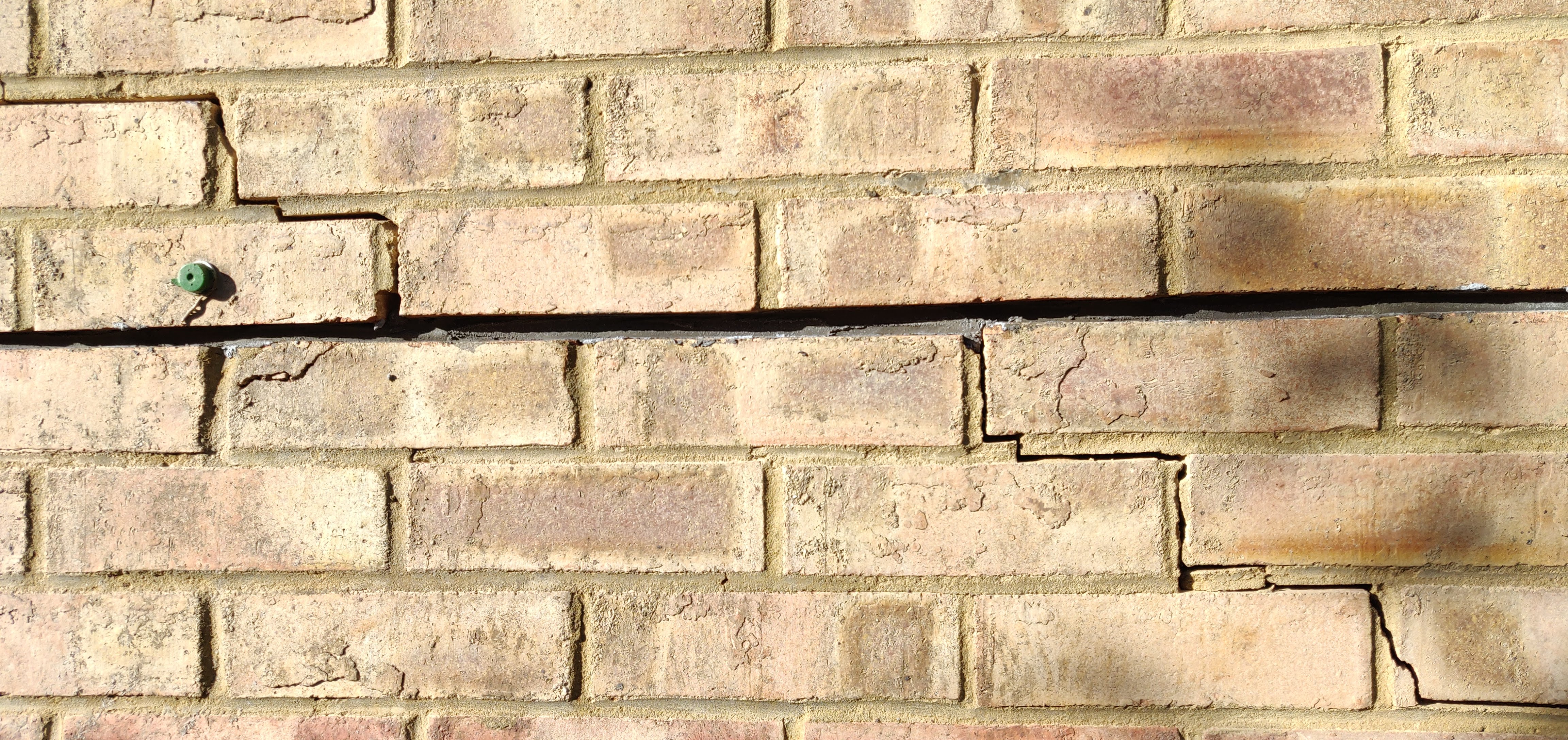
Then allow to cure overnight (>=5°C) and cover with mortar that either matches the rest of the wall or, if you prefer, you could use some with some cement in that will last a bit longer. If it was the house I would be more bothered about colour matching. But it’s a perimeter wall, so I don’t give a toss if it doesn’t really match. What’s important is that the wall remains in place, opaque and functional.
After that it was time to make good the remaining cracks, so first up I had a good look at the mortar and marked the bits I needed to do dentistry on with the diamond disc and mortar rake. I used white paint to make it clear, so I could do all the messy work in one go and be unlikely to miss bits.
This is the messiest job. Filthy dirty work. The disc is worse, but it’s so quick on the horizontals.
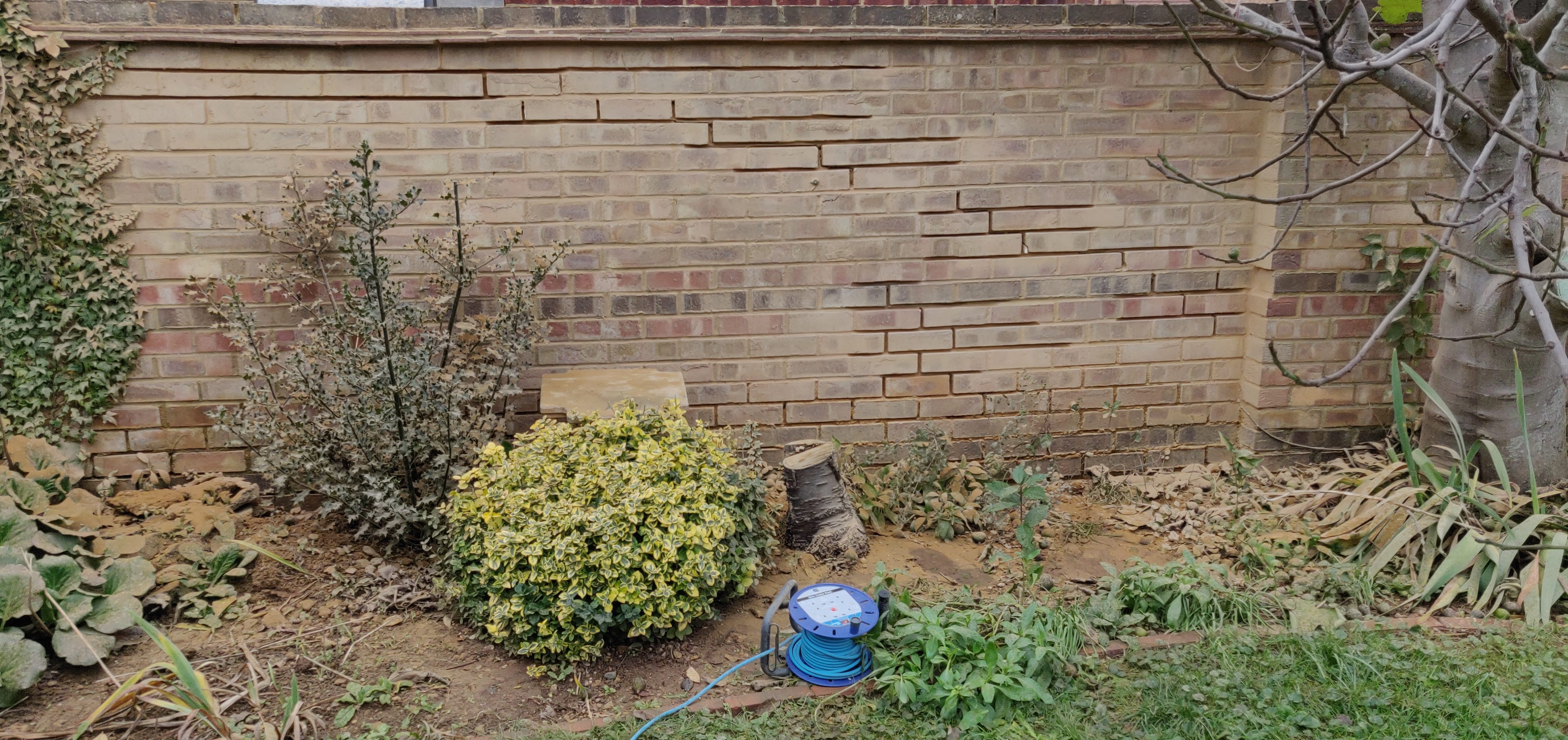
Pointed the neighbour’s side. Going to have a break now. Next thing will be the curved crack stitching, but might need to wait for a sustained period of weather above 5°C to start that.
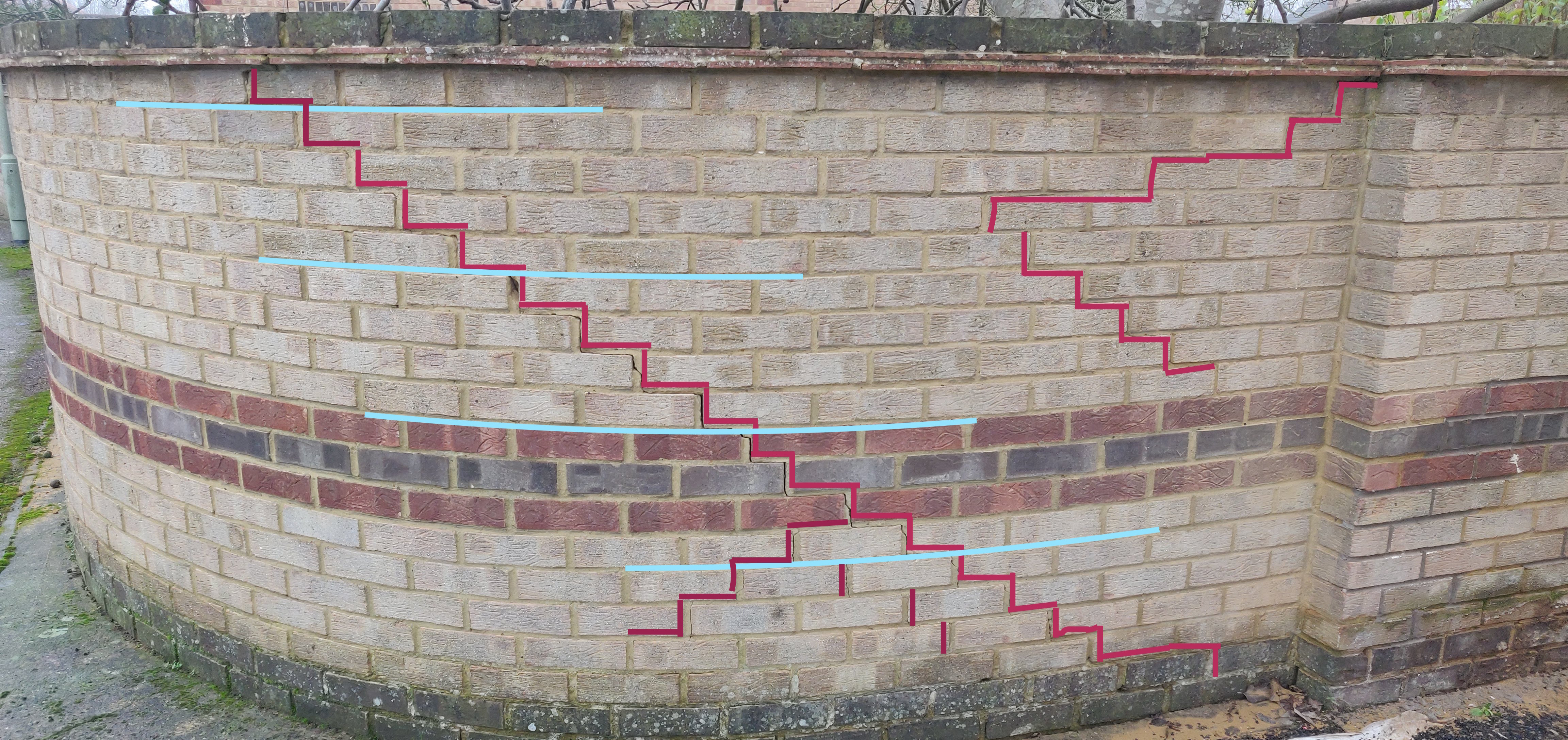
Still to do (as of 19/Nov/2020)…
- Finish the remaining rows on our side (DONE 22/11/2020)
- Do the equivalent on neighbour’s side (DONE 28/11/2020)
- Stitch the curved step crack on the other side of the fig tree (DONE 29/3/2021)
- Repoint remaining cracks on curved section our side (DONE 1/4/2021)
- Curved section neighbour’s side
- Stitch a bit on our straight section that is leaning
- Do some general pointing in places where it’s deteriorated
Time to Start Again (26/3/2021)
Forecast for the next few days is >5°C so want to get the curve stitched and secure so I can prune the fig tree. Hogged out four slots for the helical rods, which were bent slightly to fit the curves. Intending to grout these tomorrow morning, then mortar over them the next day…
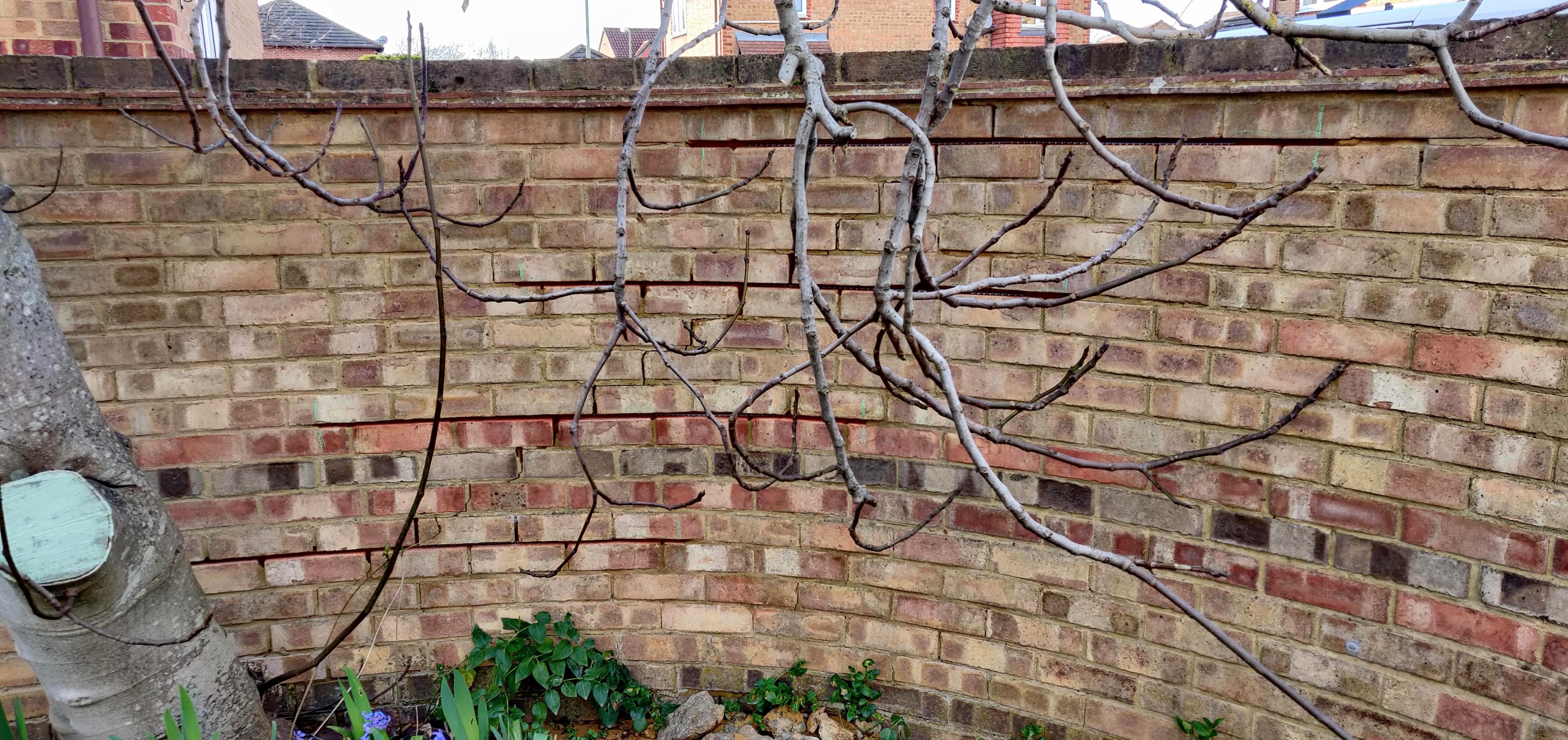
27 March 2021 – got the helical rods grouted in and marked up where I will want to repoint. There’s a lot of hogging out to do, which will start on Monday if I get the grout nicely covered up tomorrow.
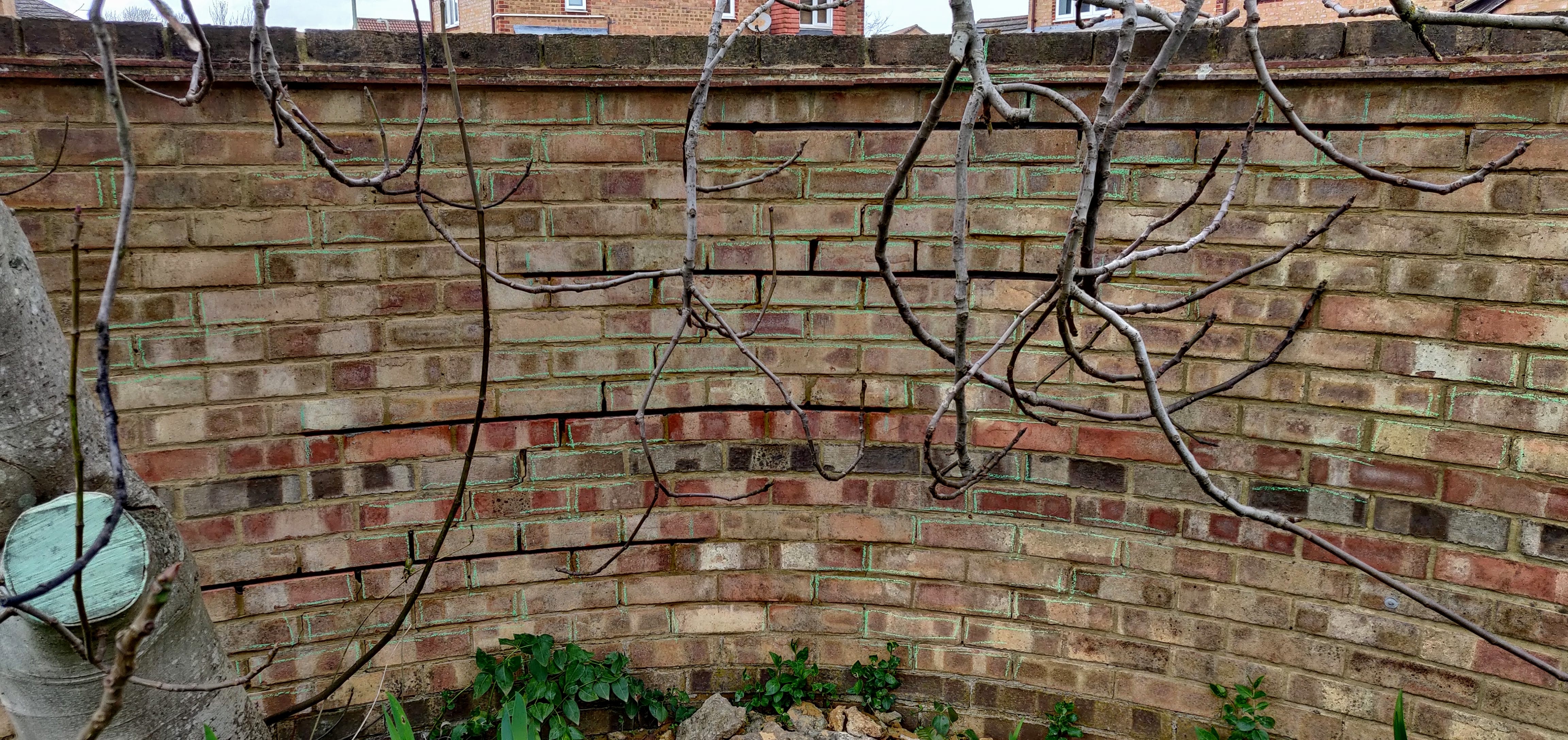
28 March 2021 Got that covered up. If weather etc. allows, will do some hogging out tomorrow. At least now, it should be strong enough to not be at risk of falling. Obviously will be full strength once the rest of the repointing is done. That will likely take a while as it needs doing in quite a few places on both sides.
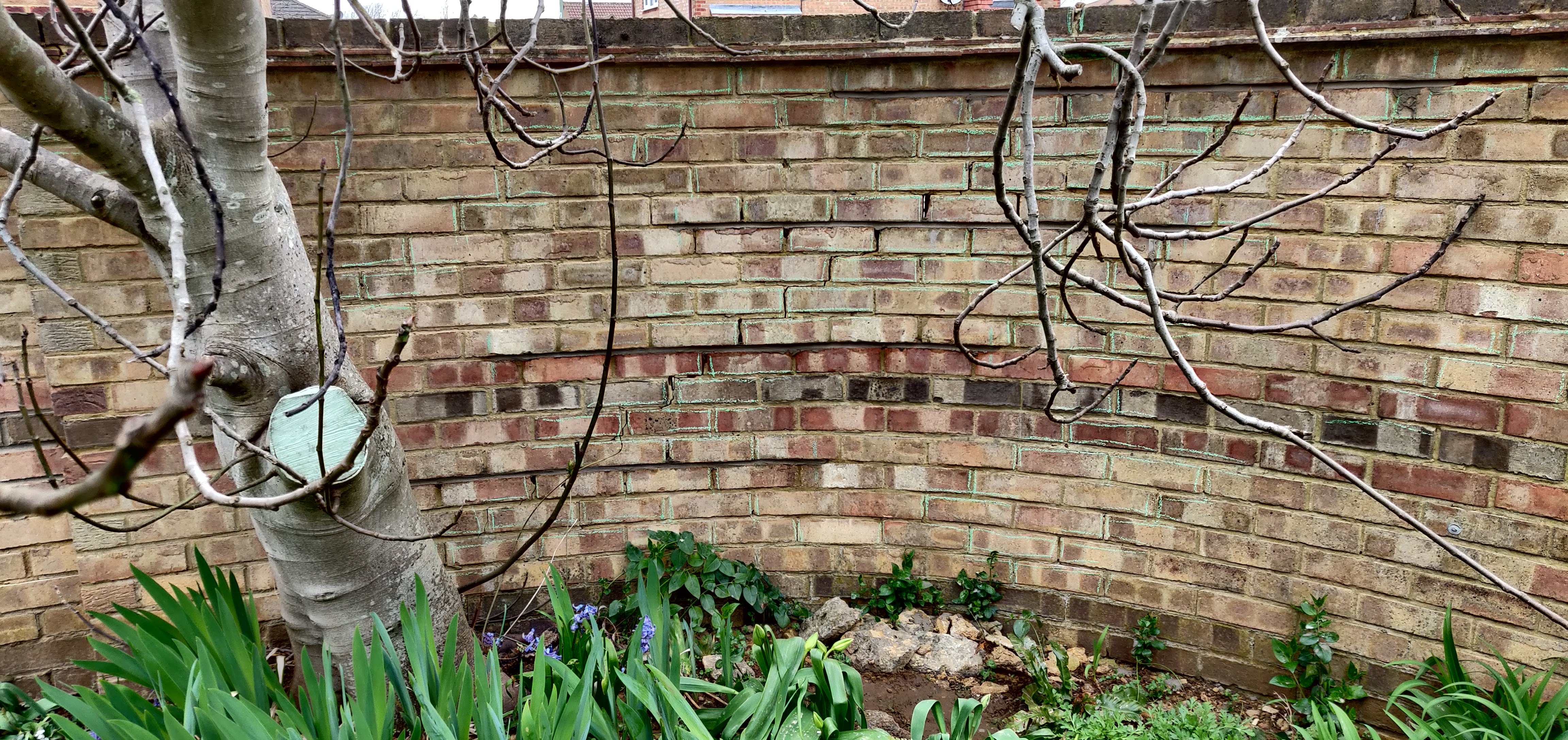
29 March 2021 Lots of hogging out today. Did it all as it’s a filthy mucky dusty shitty horrible job I don’t want to do multiple sessions. Then I filled some of it, but there’s a lot more to fill over the coming days…
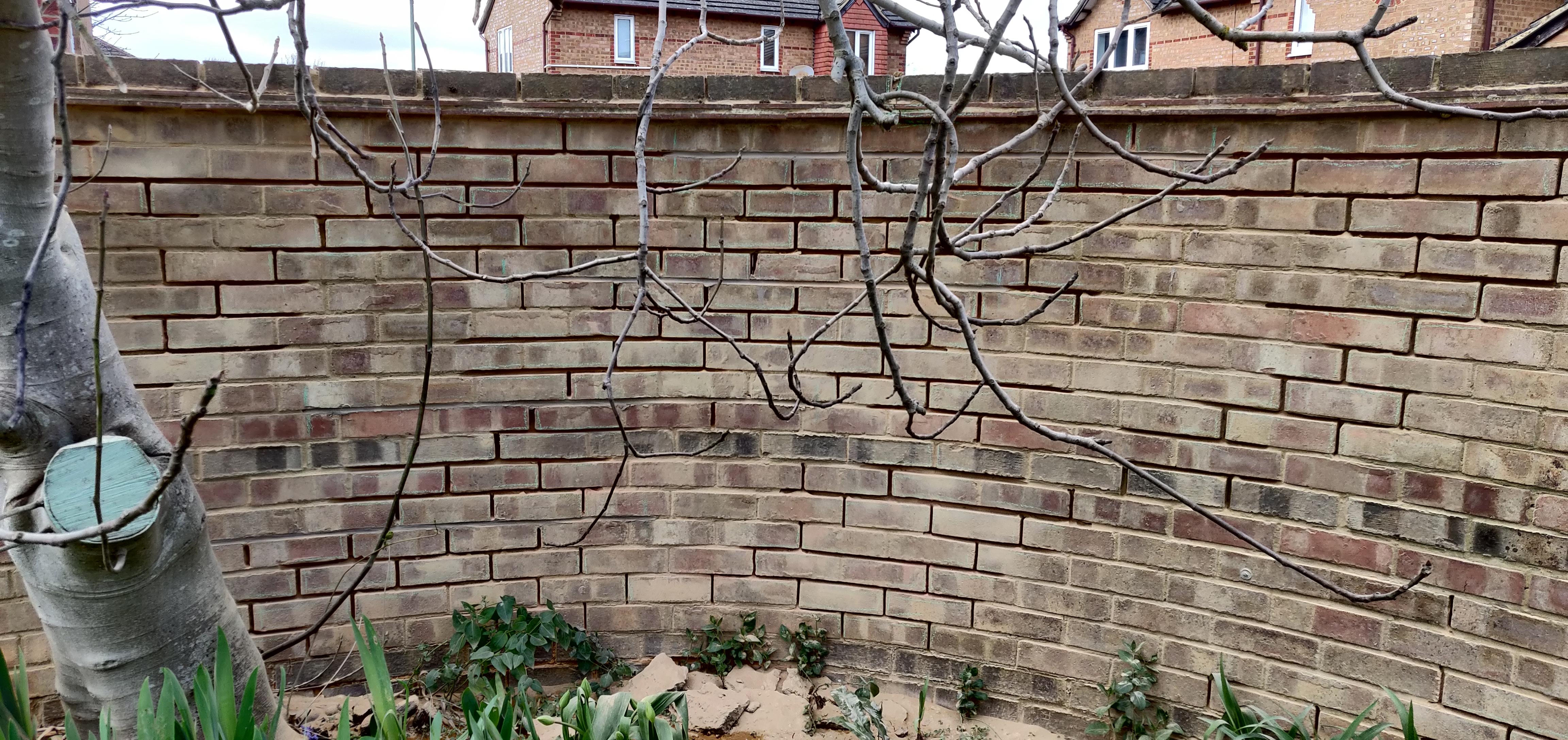
30 March 2021 – did a couple of rounds of pointing. Most of the bit round the tree is now done.
1 April 2021 – And DONE!
